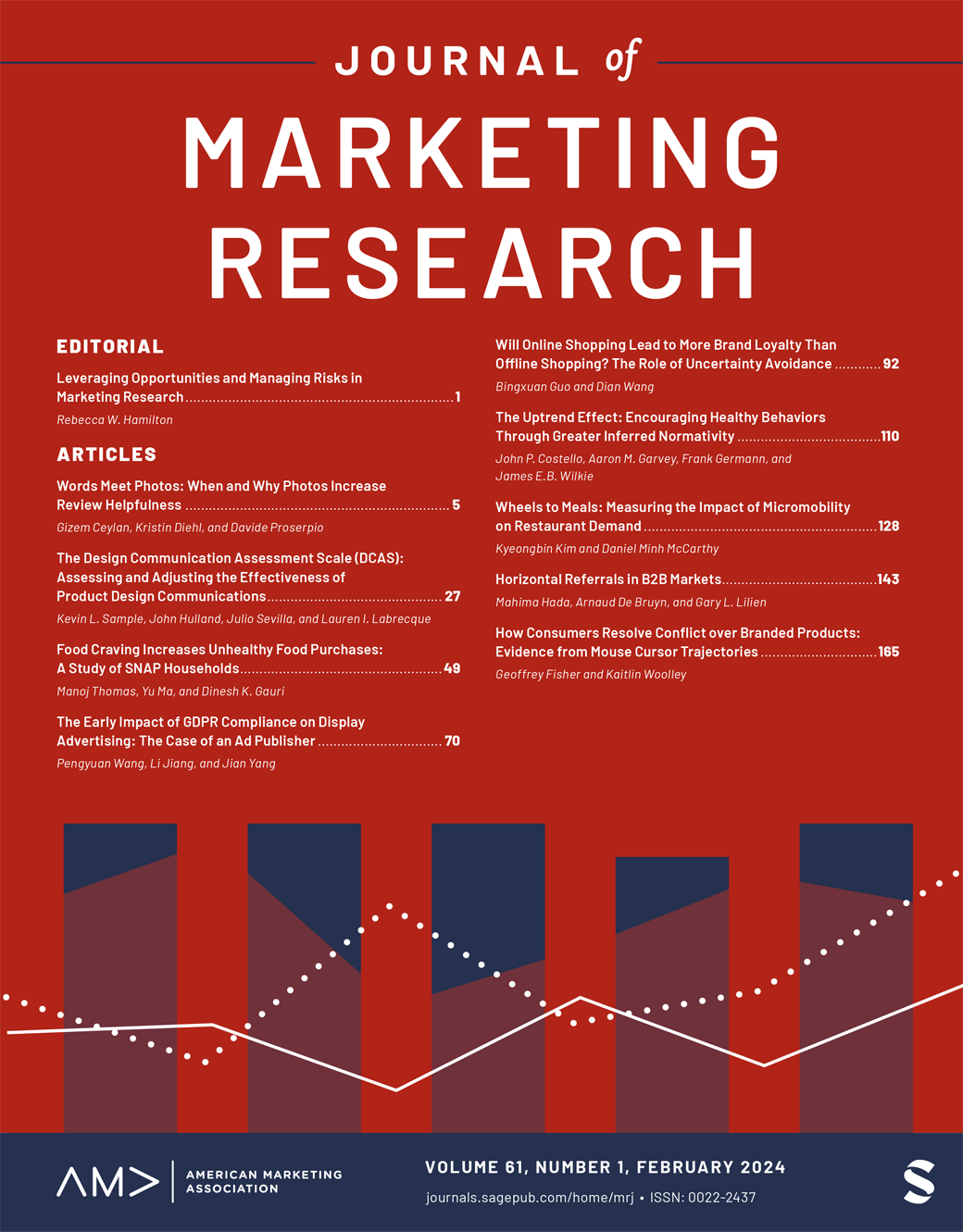代理的不耐烦:跨期选择的自我-他者决策模型
IF 5
1区 管理学
Q1 BUSINESS
引用次数: 0
摘要
跨时间选择代表了消费者决策中最普遍和最基本的权衡之一。虽然先前对跨期选择的研究主要集中在对自己的选择上,但跨期选择往往涉及一个人代表另一个人的选择。为他人做出的跨期选择与为自己做出的完全相同的选择有何不同?本研究引入了一个自我-他人决策模型,该模型区分了反应效用(源自人际反馈)和替代效用(源自想象接受者的经历)。我们在13个涉及同行之间决策的实验(N=4799)中测试了模型推导的假设。与模型中提出的反应效用的作用一致,我们发现为他人做出的跨期选择通常比为自己做出的选择更“不耐烦”。此外,当情境和个体差异削弱了对人际反馈的预期时,这种“代理人的不耐烦”就会减弱。总之,我们的理论模型和实验结果突出了人际反馈在自我-他人决策中的回报价值,为消费者的人际选择提供了新的视角。本文章由计算机程序翻译,如有差异,请以英文原文为准。
EXPRESS: The Agent’s Impatience: A Self-Other Decision Model of Intertemporal Choices
Intertemporal choices represent one of the most prevalent and fundamental tradeoffs in consumer decision-making. While prior research on intertemporal choices has focused on choices for oneself, intertemporal choices often involve one individual choosing on behalf of another. How do intertemporal choices made for another person differ from otherwise identical choices made for oneself? This research introduces a self-other decision model that distinguishes reaction utility (derived from interpersonal feedback) from vicarious utility (derived from imagining the recipient’s experience). We tested model-derived hypotheses in thirteen experiments ( N = 4,799) involving decisions between peers. Consistent with the proposed role of reaction utility in the model, we find that intertemporal choices made for others are typically more “impatient” than choices for oneself. Moreover, this “agent’s impatience” is attenuated when contextual and individual differences weaken the anticipation of interpersonal feedback. Together, our theoretical model and experimental results highlight the rewarding value of interpersonal feedback in self-other decision-making, shedding new light on interpersonal consumer choices.
求助全文
通过发布文献求助,成功后即可免费获取论文全文。
去求助
来源期刊

Journal of Marketing Research
BUSINESS-
CiteScore
10.30
自引率
6.60%
发文量
79
期刊介绍:
JMR is written for those academics and practitioners of marketing research who need to be in the forefront of the profession and in possession of the industry"s cutting-edge information. JMR publishes articles representing the entire spectrum of research in marketing. The editorial content is peer-reviewed by an expert panel of leading academics. Articles address the concepts, methods, and applications of marketing research that present new techniques for solving marketing problems; contribute to marketing knowledge based on the use of experimental, descriptive, or analytical techniques; and review and comment on the developments and concepts in related fields that have a bearing on the research industry and its practices.
 求助内容:
求助内容: 应助结果提醒方式:
应助结果提醒方式:


